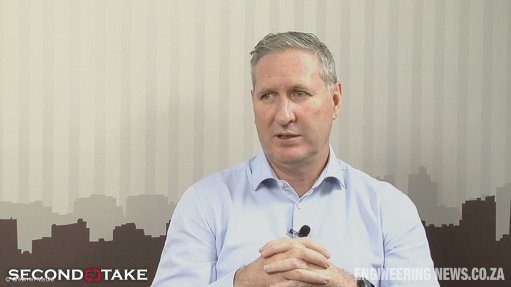From the ground up: how soil health unlocks greater yields for small-scale farmers
This article has been supplied and will be available for a limited time only on this website.
By: Dr Margaretha Brand - R&D Manager at Omnia
In South Africa, over two million smallholder farming households form the backbone of the nation’s food system. These small-scale farmers, cultivating plots often less than two hectares, are pivotal not only in rural areas but increasingly within urban and peri-urban settings. This shift is fuelled by the growing demand for organic, locally sourced produce and a desire for self-sufficiency. Across cities and suburbs, more people are embracing farming to support their families and communities, often starting in their backyards. Farmers markets are on the rise in response to a growing demand from consumers who want to know where their food comes from.
At the core of every successful farm is healthy soil. Soil is a living, dynamic ecosystem that supports plant growth, stores water, and cycles nutrients. Healthy soil improves crop yields, enhances resilience against pests and diseases, and sustains long-term productivity. When soil health declines, yields drop, costs rise, and land becomes less viable.
Many smallholder farmers, however, face challenges in maintaining soil health – challenges that often mirror those faced by commercial farmers. Chief of these is soil degradation from over-fertilisation or repeated planting of the same crop also referred to as monocropping which can skew soil health and promote diseases that reduce yields. This issue can be compounded by limited access to resources and agronomic knowledge. Over-fertilising, for instance, is a common mistake rooted in the belief that more is better. In reality, soil can become imbalanced or depleted.
Simple, strategic solutions
Fortunately for small-scale farmers who may just be starting out, effective soil care doesn’t require expensive equipment or commercial-scale investment. We recommend starting with simple, sensory-based methods like looking at and touching your soil to determine its composition. Sandy soil, for example, may suffer from nutrient runoff, while clay-heavy soils can become compacted, making root growth difficult. A good rule of thumb in this instance is if you can’t dig a spade into your soil easily, neither can your crops’ roots.
Farmers can also use cost-effective tools like soil pH kits to ensure that nutrients are available at optimal levels. Nutrients are only accessible to plants within certain pH ranges, so balancing this is key. When starting out, your nutrient needs will depend on what you’re growing. Applying the right nutrients at the right time will be one of the most important things a smallholder farmer can do.
Organic matter is another critical input. Many small-scale farmers raise animals, and their manure can be used to naturally enrich the soil. This protects soil life and structure while replenishing nutrients taken up by crops. Fertilisation isn’t about dependence but sustainability because if your crops keep taking nutrients from your soil without replenishment, your soil will die.
Proof of life
Strategic fertilisation can help sustain soil life by making nutrients available for longer periods especially when it includes both macro- and micronutrients and is paired with biostimulants. Earthworms are a good indication of a healthy soil as their presence indicates a vibrant, balanced environment. Long-term, these practices not only protect soil integrity but improve yields and resilience against climate shocks.
Some of South Africa’s most remarkable farming stories come from dry, rocky landscapes like the bush vine wine farms in arid regions, where low water availability results in smaller, more flavour-concentrated grapes. In the Western Cape, farmers have even learned to grow crops in what appear to be rocky soils, using deep agronomic understanding and soil-smart techniques. This proves that with the right approach, soil of any type can be nurtured into something productive.
Omnia plays a crucial role in supporting smallholder farmers through a mix of hands-on expertise and practical tools. Our agronomists work with farmers in the field to understand local conditions, recommend appropriate interventions, and share knowledge that’s grounded in local realities. While information is freely available online, it doesn’t always apply to a farmer’s specific context.
Whether they’re growing for their own families or their entire communities, it is critical that farmers have access to climate and location-specific advice and access to quality fertilisers and biostimulants. We support small-scale farmers across South Africa through Omnia’s Nutriology® model, which includes soil testing via our Chemtech laboratory, tailored fertiliser solutions, and crop-specific nutrient strategies which are all designed to improve soil health and unlock yield potential in a practical, accessible way.
The future of small-scale farming in SA
The country’s upcoming premier agricultural expo, NAMPO 2025, will shine a spotlight on innovations adapted to South African conditions. Omnia will be there, sharing insights and solutions, while celebrating the role of small-scale farmers in driving food security, community upliftment, and agricultural innovation.
As the local farming landscape evolves, so too does the importance of nurturing the very ground beneath our feet. Ultimately, healthy soil is more than a farming tool, it’s the foundation for healthy communities, thriving families, and a more resilient, food-secure South Africa.
Comments
Press Office
Announcements
What's On
Subscribe to improve your user experience...
Option 1 (equivalent of R125 a month):
Receive a weekly copy of Creamer Media's Engineering News & Mining Weekly magazine
(print copy for those in South Africa and e-magazine for those outside of South Africa)
Receive daily email newsletters
Access to full search results
Access archive of magazine back copies
Access to Projects in Progress
Access to ONE Research Report of your choice in PDF format
Option 2 (equivalent of R375 a month):
All benefits from Option 1
PLUS
Access to Creamer Media's Research Channel Africa for ALL Research Reports, in PDF format, on various industrial and mining sectors
including Electricity; Water; Energy Transition; Hydrogen; Roads, Rail and Ports; Coal; Gold; Platinum; Battery Metals; etc.
Already a subscriber?
Forgotten your password?
Receive weekly copy of Creamer Media's Engineering News & Mining Weekly magazine (print copy for those in South Africa and e-magazine for those outside of South Africa)
➕
Recieve daily email newsletters
➕
Access to full search results
➕
Access archive of magazine back copies
➕
Access to Projects in Progress
➕
Access to ONE Research Report of your choice in PDF format
RESEARCH CHANNEL AFRICA
R4500 (equivalent of R375 a month)
SUBSCRIBEAll benefits from Option 1
➕
Access to Creamer Media's Research Channel Africa for ALL Research Reports on various industrial and mining sectors, in PDF format, including on:
Electricity
➕
Water
➕
Energy Transition
➕
Hydrogen
➕
Roads, Rail and Ports
➕
Coal
➕
Gold
➕
Platinum
➕
Battery Metals
➕
etc.
Receive all benefits from Option 1 or Option 2 delivered to numerous people at your company
➕
Multiple User names and Passwords for simultaneous log-ins
➕
Intranet integration access to all in your organisation


















